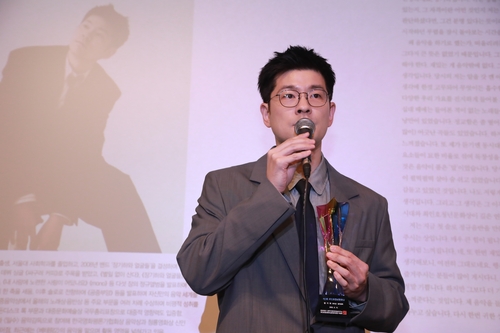The Choi In-ho Youth Culture Award calls 1970s–80s youth culture into the present.
The third winner, Jang Kiha, proved that link through music.
His conversational lyrics and experimental approach reinterpret the era’s spirit.
Creating this prize is a cultural investment that connects past and present.
Declaration: The prize commemorates the past and asks about the present
The beginning is solidarity
The 1970s and 1980s are central.
The late 1970s and early 1980s were when youth culture in South Korea first took clearer shape.
Rapid industrialization and political upheaval pushed personal identity and collective expression forward at the same time.
Choi In-ho’s novels captured the language of young people in that era.
The Choi In-ho Youth Culture Award was created in 2023 to revive those cultural currents from the 70s and 80s.
The prize highlights creators across literature, music, performance, and visual art.
Selecting Jang Kiha as the third recipient can be read as a symbolic conversation between eras.
His recognition asks questions of today’s youth as much as it honors a past generation.
Question: What does Jang Kiha’s win mean?
Plain speech is his tool
Plain speech is his language.
Through conversational lyrics, Jang Kiha puts contemporary young people’s anxieties and hopes into song.
Tracks like his 2008 breakout "Cheap Coffee" use simple words to create deep empathy.
His music blurs strict genre boundaries and delivers the mood of youth culture directly.
Key point: Jang Kiha draws from the musical roots of the 70s and 80s while shaping his own aesthetic.
His experimental moves do not cancel popular appeal; instead they propose a new auditory grammar.
In this light, the award is not a mere ritual of nostalgia.
Rather, it is an institutional mechanism that lends weight to contemporary cultural experiments.
However, institutions always involve choices that include some creators and exclude others.

Metaphor: Is the prize a lamp or a shackle?
The prize can be a lamp
Light shows a path.
Cultural prizes encourage new attempts and give visible recognition to creators who lack resources.
Jang Kiha’s win demonstrates that experimental music can receive real acknowledgement.
That sends a clear signal to younger musicians.
Artistic experimentation paired with mass appeal is not only an individual triumph.
Award recognition expands the public conversation around a work and draws broader attention.
Institutional backing can also become a resource that helps sustain creative activity over time.
Debate: Supporters and critics — what are the stakes?
Supporters call for continuation
Continuation matters.
Supporters emphasize that the Choi In-ho Award updates the 70s–80s spirit for today.
The era’s rebellious energy and desire for freedom are intangible cultural assets; preserving and circulating them through institutions has meaning.
Jang Kiha’s music shows interpretation rather than simple reproduction.
Specifically, the award can produce several positive effects.
First, it confirms the historical depth of youth culture and strengthens cultural memory.
Second, it channels attention and resources to experimental art.
Third, it stimulates hybrid creativity that crosses literature and music.
These shifts can move beyond short-term publicity toward building a longer-term cultural ecosystem.
Moreover, Jang Kiha’s recognition helps expand popular-music aesthetics.
His conversational lyrics capture young people’s everyday language and increase art’s social relevance.
His musical experiments provide practical inspiration for a new generation’s projects.
Therefore supporters argue the prize is a constructive tool for diversity and experimentation.
Critics warn against nostalgia
Nostalgia is a trap.
Critics warn that idealizing 70s–80s culture could narrow the diverse experiences of today’s youth.
Repeatedly invoking one era’s cultural codes may weaken the drive to seek new expressions.
There is also a risk that the prize becomes linked to commercial success and turns experimentation into a commodity.
Critics put forward several concrete concerns.
First, institutional recognition can reproduce certain genres and forms.
Second, looking to past models can trap creators in self-similarity and limit variety.
Third, if awards are captured by market logic, experimental efforts may suffer serious harm.
These worries are not merely conservative objections; they raise the long-term health of the cultural ecosystem as a core issue.
Critics also stress generational difference.
Today’s young people gather cultural experiences online and across borders.
They cannot be fully explained by 70s–80s codes, so institutions must be inclusive and flexible.
Thus critics argue the award should honor the past while accommodating present diversity.

In depth: Causes, reactions, and future possibilities
The causes are complex
Multiple forces are at work.
The 70s and 80s supplied cultural nourishment amid political repression and rapid economic change.
Choi In-ho’s writing and the era’s music functioned as outlets for youth anxiety and resistance.
Jang Kiha did not live through those years, yet he built his musical language on that heritage.
Summary: Social upheaval produces cultural traditions, and those traditions in turn inspire new creations.
Past and present interact through this loop, deepening creative work.
Online reaction has been mostly positive.
Fans praise Jang Kiha’s sincerity and experimental edge and often endorse the award’s intent.
Still, some express concern about nostalgia and commercialization.
That mixture of responses shows the award has sparked meaningful cultural conversation.
Reading the social context
Context matters.
Today’s young people face college admission, job choices, and economic insecurity.
So cultural commemoration should be more than nostalgia; it should offer space for social repair and empathy.
Art can expand mental resources and help relieve stress and anxiety.
Online platforms especially accelerate the spread and transformation of culture.
Jang Kiha’s music found new listeners online and created spaces where generations meet and respond to each other.
In that sense institutions should weigh both offline authority and online fluidity.
Balancing stability and experimentation remains a central task.
Comparison: How Korea differs from other cases
Comparison gives insight
Foreign examples are useful to consider.
In the West, rediscovering the past often helps regional cultural industries revive.
However, South Korea’s political history and social trauma make cultural meaning more layered here.
So simple imitation is futile; context-sensitive reinterpretation is necessary.
"I was born in 1982, so I didn’t experience 70s and 80s music in real time, but that era’s sensibility still influences today’s expression."
This remark shows the importance of cross‑generational connection.
Jang Kiha mixes past codes with current concerns to shape new language.
Therefore comparisons should focus on variation and continuity, not just metrics of success.
Conclusion: What remains and whom to ask
The point is clear
Passing on youth culture is not optional.
The Choi In-ho Award and Jang Kiha’s win are efforts to summon the past’s spirit into the present.
Whether they succeed depends on how inclusive and flexible the institution proves to be.
Three main takeaways stand out.
First, institutions must honor the past while embracing present diversity.
Second, achievements like Jang Kiha’s come from complex interactions within the cultural ecosystem.
Third, the combination of online reach and offline infrastructure will shape the future sustainability of culture.
We leave a question to readers.
How would you connect past cultural assets to today’s creative work?